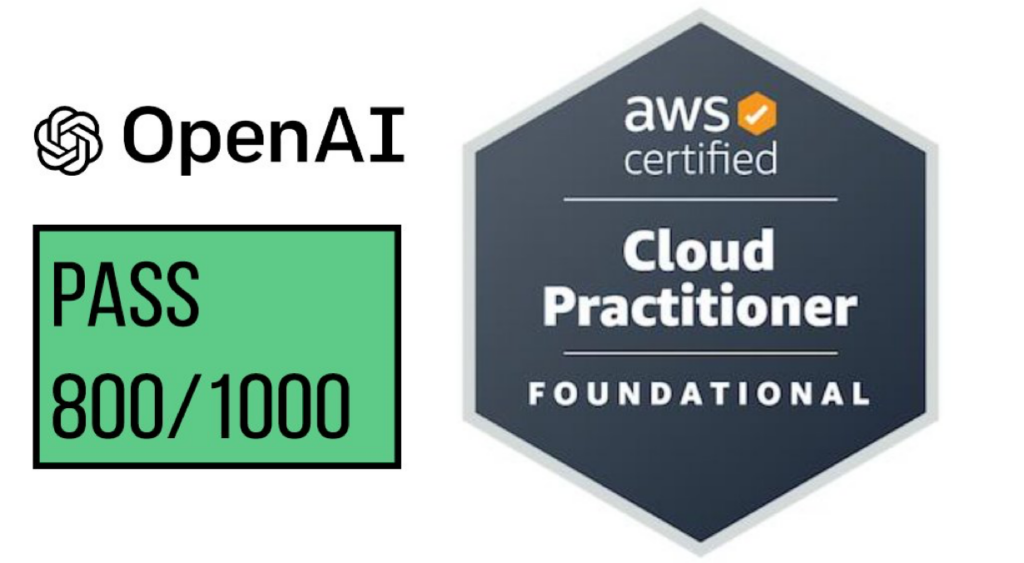Mehrheit der Bundesbürger hält sich für unersetzlich.
Das Ding ist halt, dass darüber nicht der Bundesbürger entscheidet. Sondern der Chef, der denkt, daß das bisschen Arbeit auch eine KI machen kann.
Mehrheit der Bundesbürger hält sich für unersetzlich.
Das Ding ist halt, dass darüber nicht der Bundesbürger entscheidet. Sondern der Chef, der denkt, daß das bisschen Arbeit auch eine KI machen kann.


Ein ganz klein bisschen Spaß zum Wochenende. Die meisten aktiven Internet Teilnehmer haben den Hype um ChatGPT in der vergangenen Woche sicher nicht verpasst. Die künstliche Intelligenz ist in der Lage, Gespräche zu führen und einfache Fragen zu beantworten.
Der Chatbot hat große Begeisterung ausgelöst, weil die Qualität der Konversationen weit über den bisher bekannten Fähigkeiten künstliche Intelligenz liegt. Solche Produkte finden Anwendung im Sales- und Servicebereich, wo es um die Skalierung von Interaktionen mit Kunden geht.
Nun hat Stephane Mareek @StephaneMareek ChatGPT dafür verwendet, Fragen für eine Zertifizierungsprüfung beantworten zu lassen. Und das Ergebnis kann sich durchaus sehen lassen. Ein Software Produkt ist nun seinerseits für ein andere Software Produkt durch den Hersteller zertifiziert.
Nach meinem dafürhalten spricht das weniger für die Qualitäten der künstlichen Intelligenz, als gegen die Qualität von solchen Zertifizierungsprüfungen. Bekanntermaßen scheiden sich die Geister über diese Frage leider auch schon sehr viel länger.
Ich bin jedenfalls schon gespannt, welche anderen Zertifizierung ChatGPT noch so problemlos erlangen kann.
Facebook arbeitet an einer KI, die automatisch Code von einer Programmiersprache in eine andere übersetzen kann. Das Feld ist nicht gänzlich neu, es gab schon Versuche, KI zu verwenden um beispielsweise statische Analyse und damit Code-Qualität zu verbessern. Wenn eine Maschine zwischen Code übersetzen kann, werden eine ganze Reihe von Banken jubeln, endlich nicht mehr auf unersetzbare, uralte Cobol Programmierer angewiesen zu sein, die auch noch unfassbare Stundensätze aufrufen.
Es ist eine Gelegenheit, schwierigere Probleme anzugehen.
Aber nur solange die Künstliche Intelligenz nicht weiterentwickelt wird. 🤷🏻♂️
Automatisierte Gesichtserkennung: diese Woche is eine Recherche zu dem US Unternehmen Clearview durch die Medien gereicht worden. Die Artikel haben jeweils viel Aufmerksamkeit auf sich gezogen.

Gesichtserkennung ist das Feature, das man bereits von Fotoverarbeitungsprogrammen, Handys und sogar Sozialen Medien kennt. Für die meisten Nutzer dieser Programme oder Dienste ist das meist ein lustiges, manchmal sogar nützliches Feature. In einer großen Sammlung von Fotos schnell alle für die Geburtstagsfeier alle Freunde wiederzufinden, ist schon praktisch.
Wenn diese Funktionalität die Grenzen der privaten Nutzung überschreitet beherbergt die Anwendung große Gefahren. Zum einen handelt es sich hier im eine private Firma. Weder weiss eine betroffene Person, ob Ihr Bild in der Datenbank geführt wird, noch ist eine Kundenliste der Firma bekannt. Das bedeutet, dass die Anwendung der Datenbank ebenso unklar ist, und damit auch Missbrauchspotential eröffnet. So gab es bereits Fälle, in denen Beamte Frauen nachstellten. Eine Fotodatenbank erleichtert solche Vorhaben. Genauso, wie Regierungen und offizielle Stellen beispielsweise Videoüberwachung öffentlicher Plätze leichter auswerten können. Damit wäre denkbar, Bewegungsprofile von beispielsweise Regierungskritischen Bürgern zu erstellen.
Die Technologie bringt durch Ihren Einsatz im öffentlichen Raum eine automatisierte Verletzung von Privatsphäre der Bürgerinnen und Bürger mit sich, wie auch Ulrich Kelber, Bundesdatenschutzbeauftragter, sich äussert.
In der Süddeutschen hat Simon Hurzt bereits am Dienstag eine handliche Übersicht über die Problematik mit der Technik veröffentlicht. In dem Artikel sind die wichtigsten Fragestellungen über automatisierte Gesichtserkennung antwortet.
This week in dystopia: The New York Times has an article about the next steps in dystopian future. A start-up evolving face recognition algorithms, fed by a database with facial images, scraped from the open web.

A little-known start-up helps law enforcement match photos of unknown people to their online images — and “might lead to a dystopian future or something,” a backer says.
The New York Times: The Secretive Company That Might End Privacy as We Know It
Further, the article describes the sheer size of the database. At a rate of massive duplicate numbers, three billion images is still impressive.
The system — whose backbone is a database of more than three billion images that Clearview claims to have scraped from Facebook, YouTube, Venmo and millions of other websites — goes far beyond anything ever constructed by the United States government or Silicon Valley giants.
The New York Times: The Secretive Company That Might End Privacy as We Know It
In times in which criticism of big tech is on the rise. Just this week Jannis Brühl, Head of Tech News Department at @sueddeutsche Zeitung published an opinion that this technology is dangerous and should be banned,. The article include an appeal to German government to create legislation to do so. Jannis is in good company with other tech critics like Eyvgen Morozov
Source: The Secretive Company That Might End Privacy as We Know It

GitHub today released a CI/CD Tool, GitHub Actions. With the tight integration into development workflows and rich, community maintained build-command, actions appears an interesting competitor in the market. As a minimum, the release indicates the importance of CI/CD for the modern software development lifecycle.
Developer productivity and frictionless workflows have been buzzwords for the past half decade and the arrival and rapid growth of Travis-CI, Jenkins or Cirlce-CI have proven the resonance in development organisations. GitHub has outstanding testimonials from day one on the announcement and the ecosystem appears to be ready to go.
It is an offering that comes with appealing integrations and a competitive price, that sure is worth watching.
GitHub Actions makes it easy to automate all your software workflows, now with world-class CI/CD. Build, test, and deploy your code right from GitHub. Make code reviews, branch management, and issue triaging work the way you want.
Microsoft trained an AI with Github projects that have more than 100 stars on them. The AI is supposed to help coding. And it is available now. AI is not yet there to take a programmers job, but Facebook took similar approaches to speed up development. Be afraid, coding people.
IntelliCode, Microsoft’s tool for AI-assisted coding, is now generally available. It supports C# and XAML in Visual Studio and Java, JavaScript, TypeScript and Python in Visual Studio Code. By default, it is now also included in Visual Studio 2019, starting with the second preview of version 16.1, which the company also announced that. IntelliCode is […]
Source: Microsoft’s IntelliCode for AI-assisted coding comes out of preview | TechCrunch
 Today in dystopian news: Amazon, the book selling department, controlling about 40% of the US book market, collects reading habbits from their sales and Kindle. By now the corporation knows enough about it’s customers it could be generating best selling books. Spookey. And potentially game changing, when machines replace creative professions.
Today in dystopian news: Amazon, the book selling department, controlling about 40% of the US book market, collects reading habbits from their sales and Kindle. By now the corporation knows enough about it’s customers it could be generating best selling books. Spookey. And potentially game changing, when machines replace creative professions.
Amazon has the ability to track vast amounts of reader data and use it to change the landscape of American fiction.
Source: Amazon has so much data it could make algorithm-driven fiction — Quartz